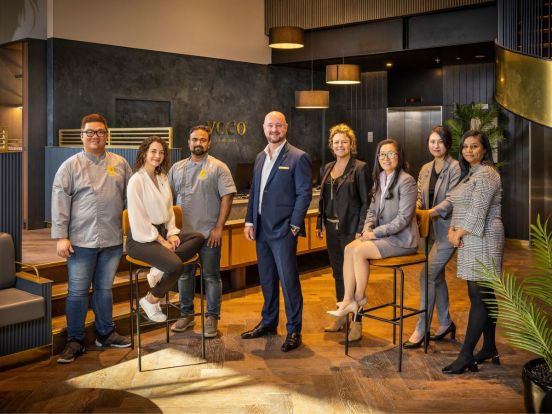The arrogance of success is to think that what you did yesterday will be sufficient for tomorrow. – William Pollard
Remaining competitive in the hospitality industry is hard work, and falling into a slump can happen quickly. The team may rest on their laurels, interiors may become tired, or social media presence slows. Once that complacency kicks in, it can become difficult to recalibrate. It is especially important to be cognizant of at a time of reopening; businesses may feel an initial surge of customers through the doors then wonder why bookings taper off.
ResDiary Head of Customer Success and Support APAC Stefan Overzier – who has worked in the hospitality industry since 1991 – says the key to competitiveness is great service, high-quality produce, consistency of performance and reinventing while still remaining true to the venue’s identity.
“There are certain businesses that do well but eventually the ball stops,” Overzier says. He explains that a telltale sign is a low customer return rate.
These are four steps that businesses should consider to remain competitive in the hospitality industry.

1) Conduct research
It’s hard to get out of a slump if the venue doesn’t know what’s going wrong. It might be the menu, the service, the location, the fit-out, economic and social conditions, software, booking and branding issues, changing trends and so on. There’s always going to be things to work on, and the venue needs to know what they are in order to fix them. In addition to conducting market research and checking in with competitors, Overzier suggests inviting friends and family to dine at the venue with a critical eye to help pinpoint what’s going well, what could be improved and what changes need to be made. Front-of-house staff can also gather feedback from guests, refer to reviews, and host menu tastings with focus groups.
2) Fix the issues, then get the word out
Once potential issues have been investigated, identified and remedied, tell people about these improvements. Be active on social media, and put time and energy into different marketing strategies to get the word out. Overzier suggests utilising website, social and booking notifications to show what’s new at your venue. “ResDiary’s tools can help record birthdays, anniversaries and significant milestones on customer profiles, and send an email a month before with a personalised deal or promotion. If they were here six months ago, and haven’t come back, offer them something to return. You may have to give a bit away to gain that business.”
3) Consider updating your menu and fit-out
Diners want to go to venues that look busy and vibrant. Changes to the internal layout can send a message that the business is going through a period of reform. This does not necessarily mean a full renovation; a new coat of paint and/or indoor plants can help to revitalise the venue. Overzier also suggests using new and local produce, keeping up to date with trends locally and internationally – for example, incorporating plant-based dishes – and tweaking the menu accordingly.
“Sometimes to remain competitive you have to make small adjustments to your menu or fit out, or you might have to make substantial changes,” Overzier explains. “When you stall, you have to reinvent yourself so customers don’t go elsewhere – that’s [akin to] being competitive.”
4) Make sure everyone is on the same page
Once changes have been identified, and potential diners have been notified of these changes, it’s important that they are executed properly. This involves updating procedures and protocols, and ensuring that everybody in the venue is up to date with the new MO. According to Overzier, the best marketing is still word of mouth post-dining, so it’s critical that the venue creates expectations of a consistently positive experience. “You have to do it right so customers come back and tell their friends,” he says.
For a hospitality venue to be competitive, they have to do a variety of tasks and actions well. If they fall behind, it’s not necessarily the end. Rather, it may move the business to examine what’s happening internally and externally, make the necessary improvements and reinvent accordingly.

Book a personalised demo of ResDiary to learn how it can help you stay competitive in the hospitality industry.
Disclaimer: This guide is general in nature and does not take into account your individual circumstances. Before acting on any information, you should consider whether this is right for your business.
Sponsored content by ResDiary








